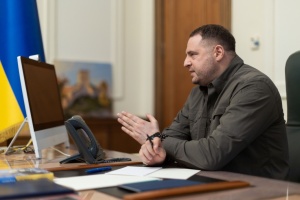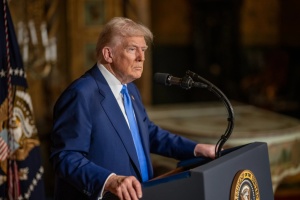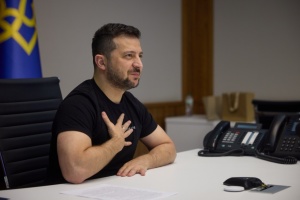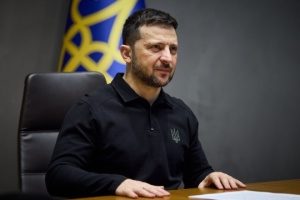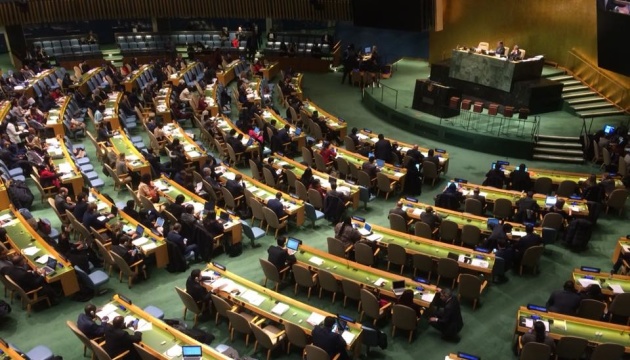
Dangers of 'Vetocracy' in the UN
Doubts of veto right effectiveness are in fact older than the UN itself. It was in midst of argues between small and big nations on the issue that the organization was born. The latter won by an ultimatum. With time, however, it becomes just more obvious how dangerous and counterproductive an unrestrained power of some members of the “Big Five” can be. In particular, its about the Russian Federation’s abuse of its veto power. A question keeps looming: “Isn’t it time to at least limit if not drop the veto right in the UN Security Council?” However, realistically considering such reform perspectives, it should be rather put in the following order: “Will we be able to fix the Security Council voting flaws without waiting for another global catastrophe?”
‘SISTO ACTIVITATEM!' FROM THE LEAGUE OF NATIONS TO THE UN
At the time of the UN creation in 1945 the destructive power of veto was already well-known from experience of its predecessor - the League of Nations. Needless to say that it was only one of its flaws. Unlike our current United Nations, the League provided veto right to all of the members - temporary and permanent - of the League’s Council, prototype of the UNSC. The number of such states grew from four in 1920 to 15 in 1936, with each one of them being able to block any decision. The organization’s inability to solve pressing issues between countries led to the most horrible war in the humankind history.
It wasn’t yet at the ruins, but still in the final act of this catastrophe, that the future victors began discussing the post-war world order. Active talks started in 1944 and materialized in 1945 Yalta, where leaders of the United States, Britain, France and the USSR agreed, among other things, to grant themselves a veto right in the soon-to-be United Nations.
When in April-June 1945 fifty nations, among which was also Ukraine (albeit in the form of the Ukrainian Soviet Socialist Republic and as a result of Stalin’s manipulations) came together in San-Francisco to work on the Charter of the United Nations, it was the veto right that caused the most heated debate and became an obstacle to moving forward. A number of nations argued that an unlimited veto right is dangerous for the global order. The U.S. delegation’s advisor Francois Willcox later described that “Leaders of the Big Five explained in all clarity in San-Francisco: there will either be a Charter with veto or none”. One of the U.S. delegation members reportedly even tore up a copy of the Charter while giving his speech, warning the delegates in the audience that it would be their fault if the agreement was not reached. The ultimatum worked and on June 26, 1945 the Charter - with veto right in it - was open for signing.
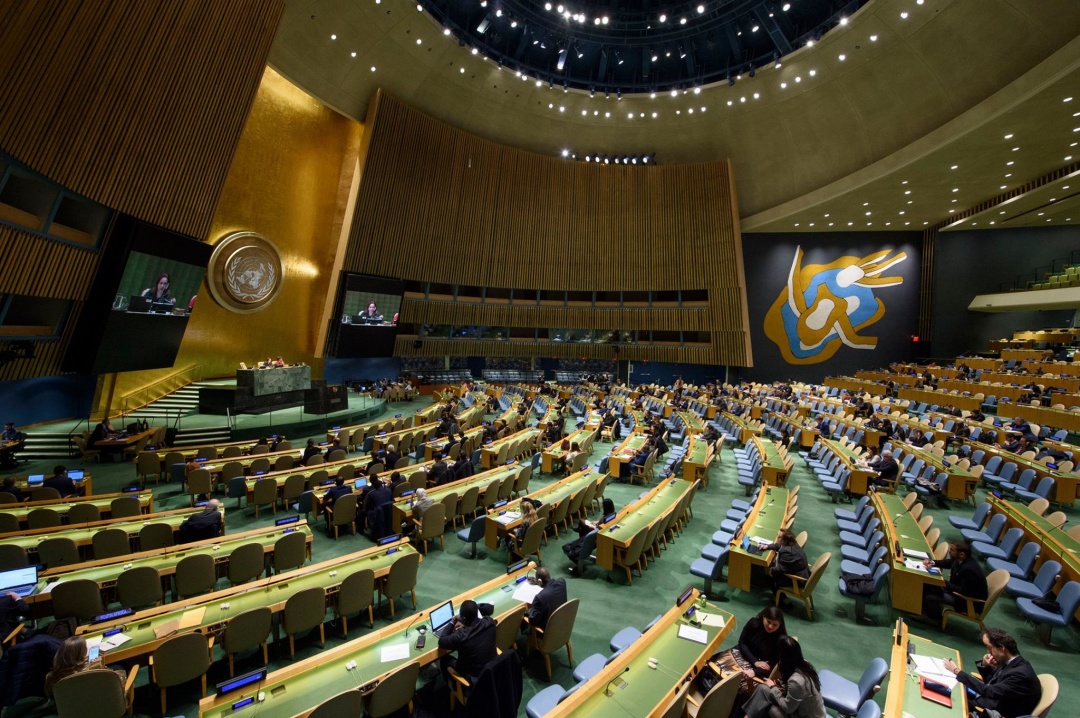
Interestingly, there is no word “veto” in the document’s text. Article 27 only mentions “the concurring votes” of the permanent members, which, as founders assured, is meant to facilitate unity among the most powerful member states. In result, to pass a vote in the Security Council since 1945 up until today, it needs to be supported by “an affirmative vote of nine members including the concurring votes of the permanent members”.
SURGEON GENERAL WARNING: ABUSE OF THE VETO RIGHT HARMS THE UN HEALTH
Not more than a year since the UN was created the first veto was cast. In February 1946, the USSR blocked the decision on the withdrawal of forces from Lebanon and Syria. In the first quarter century of the United Nations, the Soviet Union blocked more than 100 UNSC decisions. Until the U.S. representative first raised hand to block a vote in 1970, the USSR had already effectively turned down 107 resolutions. It was for such frequent use of the right that the Soviet minister for foreign affairs Vyacheslav Molotov got his “Mr. Veto” nickname.
The tendency changed only since 1970s, when the U.S. started exercising its veto much more often than others to diplomatically protect Israel.
Overall, in 73 years of the UN existence, the U.S. blocked 80 decisions. Great Britain used its veto 32 times. France - 18. China vetoed 13 UNSC decisions, most of them - in the latest decades.
FROM “MR. VETO” TO COVERING UP MASS CRIMES
Almost half of 287 vetoes in the UNSC from 1945 to 2019 were cast by Moscow: the overall number of decisions blocked by the Kremlin has now reached 141. If the next six ones are all Russian, the country will score half of all vetoes in the UN history.
It’s important to point out that the way countries use their veto right is different. Each of the five has expectedly used it to secure own national interests in various international crises and spats. For France, for example, the issue of Comoros independence was vital. For Great Britain - its stance in Suez crisis. The U.S. has long protected the State of Israel, the only democracy in the Middle East which exists against all, mildly speaking, unfavourable circumstances.
At the same time, some, it seems, do not differentiate between national interests and covering up mass murder or war crimes. Over the years, Moscow has blocked, for example, investigations into two passenger jets that it shot down. Korean flight 007 destroyed by a Soviet fighter jet in 1983. Malaysia Airlines flight MH17 which a Russian missile Buk-M1 shot down from the sky in 2014. The author of this article has personally witnessed the crash site of the latter and still remembers burnt-out fields, paddles of melted metal and the scent of death. The Kremlin covering up such crime is simply despicable. Russia also blocks investigation into other war crimes, in particular, chemical attacks by brutal Syrian dictator Assad against civilian population. Russia has refused to condemn the first annexation of territory in Europe since the Second World War, because it itself committed it by occupying Crimea. 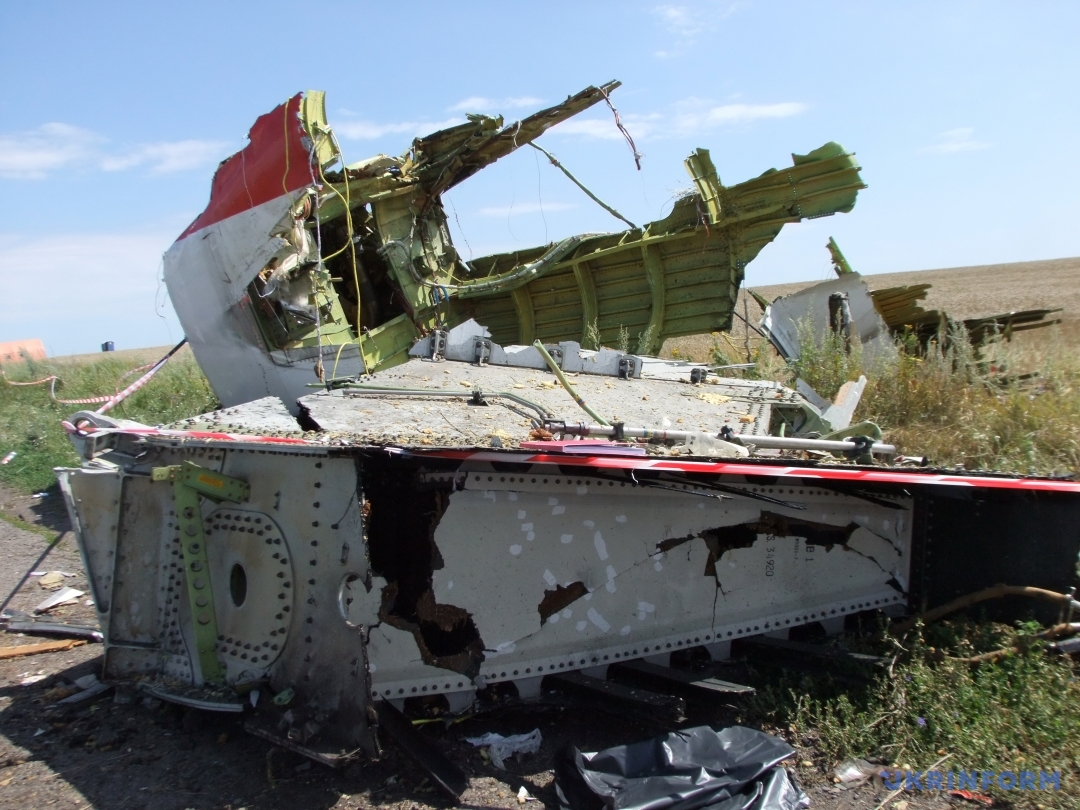
After the Cold war ended, dynamics of the veto use in the UNSC changed too. France and Great Britain have not cast one since 1989. The U.S. representative raised hand 18 times. Ten of 13 Chinese vetoes have been exercised since 1997. Russia managed to set a record here too: it blocked 22 UNSC decisions over this period. Sixteen of them were cast since 2011, already in the “developed putinism” era. Twelve of Russian vetoes were on Syria, one - sanctions against Yemen, one - resolution devoted to 20 years since genocide in Srebrenica, and two - regarding Russian aggression against Ukraine.
Over the last seven years, the Kremlin has blocked 16 UNSC decisions, while the U.S. has vetoed only two.
And while in the twentieth century it was probably relevant to joke about “Mr. Veto”, what is it all about now, at the end of 2010s? Isn’t it about one of permanent members of the Security Council systemically abusing the veto right and irreversibly harming the most authoritative organization in the world, which, despite all criticism, protects the world order for 73 consecutive years? Furthermore, not only moral, but also legal right of Russia to be part of the “Big Five” is under serious doubt. This is to be discussed further.
WHO AND WHY CALLS TO LIMIT THE VETO
Despite a popular belief that limiting the veto right is an unfulfillable dream - thus not worth even suggesting - the idea actually has quite some number of advocates. Amongst them are powerful human rights groups and more than a hundred of the UN member states, including two permanent members of the Security Council.
Some of such initiatives can be found on the UNSC’s official web page. The first such collective action was taken by the so-called “Small Five” - a group of Costa-Rica, Jordan, Lichtenstein, Singapore and Switzerland - back in the early 2000s. They called on permanent members of the Council to “refrain … from using a veto to block Council action aimed at preventing or ending genocide, war crimes and crimes against humanity” and explain motives of each veto. Similar calls where made by member states during various discussions on working methods of the UNSC.
The “Small Five” initiative evaporated with time but has not disappeared without impact: others picked up the flag. On May 2, 2013 a cross-regional group of 27, called “ACT” (Accountability, Coherence, Transparency) was established. They developed a code of conduct for member states, which was published on September 1, 2015. It read in particular, that “UN Member States are increasingly expressing support for the idea that permanent members of the Security Council should voluntarily agree to refrain from using their veto in situations involving mass atrocity crimes”. The initiative was supported by one of the “Big Five”, France, immediately upon being put forward. By status on January 1, 2019, it is already signed by 119 UN member states, including two permanent UNSC members: France and Great Britain. Needless to say that Ukraine is also one of the signees.
Ukraine’s permanent representative to the UN Volodymyr Yelchenko publicly pursues the idea of a gradually getting rid of the veto power too. In his recent article “The UN of the Future” he wrote that “our state consistently supports gradual lifting of the veto right, which is an especially pressing issue for Ukraine taking into account the ongoing aggression against it by Russia, one of the UNSC permanent members”. He reminded that in numerous cases regarding Russo-Ukrainian conflict, Malaysian flight passenger jet shot down from the sky, issues of Salisbury and situation in Syria, the Security Council has remained “paralyzed” due to Russia’s abuse of the veto right. Mr. Yelchenko said he is convinced that “when a permanent member of the UNSC is a side to the conflict being considered by Council, it should be stripped of possibility to excerise veto over an issue where it has interest”.
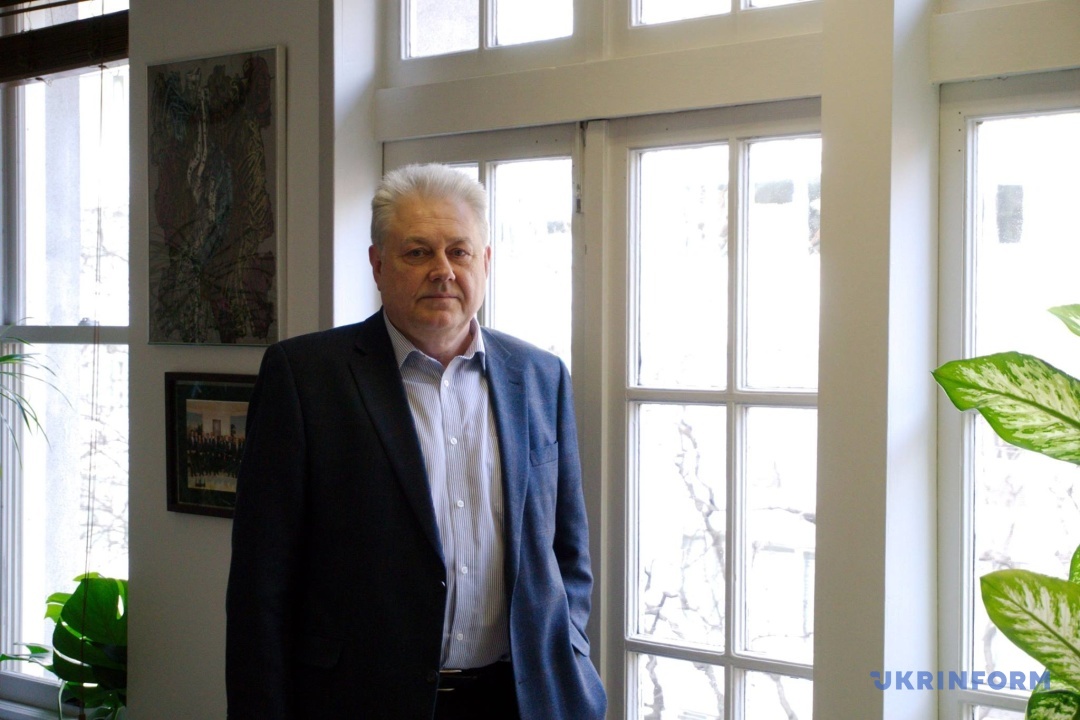
It is also important to mention the role of France, which actively pursues the idea of limiting the veto right. Official Paris has set it as a priority of its foreign policy back in 2013. In September 2014, France in partnership with Mexico arranged a special event devoted to the issue at the sidelines of the General assembly. In result, a political declaration was signed calling on the “Five” to voluntarily limit their exercise of the veto right, which by now has been signed by 96 countries.
Some high-ranking UN officials also called to limit the veto. In autumn 2016 at the peak of Putin and Assad’s indiscriminate air bombardment campaign against civilians with no regard to at least basic rules of war, UN High Commissioner for Human Rights Zeid Ra'ad Al Hussein called for the permanent UNSC members to be stripped of their veto right if they continue to use it for blocking investigations of war crimes in Syria.
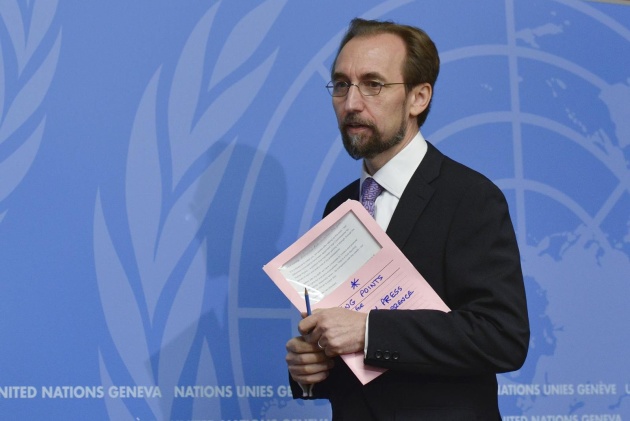
His call was made in an interview to Roland Oliphant of The Telegraph on October 4, 2016.
In four days, on October 8, 2016, late Vitaly Churkin raised his hand. Russia blocked another UNSC resolution on Syria №S/2016/846, with which the Security Council demanded to immediately cease bombardment by Russian and Syrian aviation of civilian population in Aleppo, abide by international law, immediately provide access of humanitarian missions to the zone of conflict, where hundreds of thousands of Syrians needed their help.
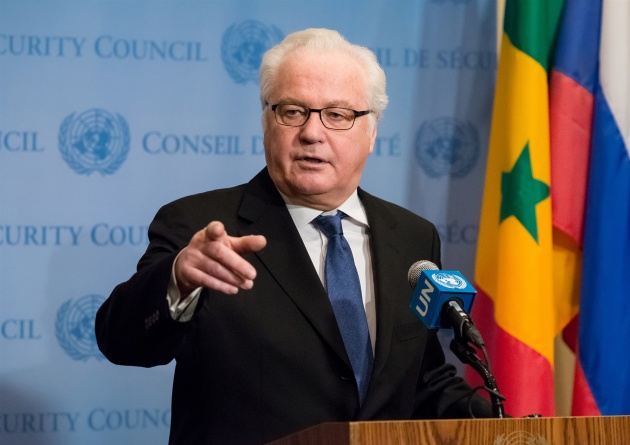
Among the first ones to join the call for a new code of conduct for the UNSC in early stages of its development where also human rights activists of the Amnesty International. In their annual report for the years 2014/2015, which they called “the most catastrophic in terms of escalation of military conflict around the world”, Amnesty supported the proposal for the UNSC permanent members to “voluntarily restrain from using veto to block the Security Council action in cases of genocide, war crimes and crimes against humanity”.
Volodymyr Yelchenko in his recent article also writes about initiatives of a number of aspirants for the UNSC membership to expand the number of temporary members of the Security Council as well as proposals to grant more nations the veto right. Taking into account the experience of the League of Nations, which also gradually increased the number of member states in the League’s Council and provided all of them with veto right, this perspective is frightening: wouldn’t the UN repeat the history of its predecessor and become even more paralyzed than it currently is?
IS RUSSIA REALLY A PERMANENT MEMBER OF THE SECURITY COUNCIL?
Russian Federation’s abuse of its veto right in the last seven years seems even more indiscriminate because the Kremlin… is actually not a permanent member of the UN Security Council.
Russia de-facto inherited the Soviet seat of a permanent member at the UNSC, with transition never legally arranged.
Anyone at any moment can check the Charter of the United Nations, its fifth chapter, and article 23, available online on the UN's official website:
“The Security Council shall consist of fifteen Members of the United Nations. The Republic of China, France, the Union of Soviet Socialist Republics, the United Kingdom of Great Britain and Northern Ireland, and the United States of America shall be permanent members of the Security Council” - the “constitution” of the UN reads.
The author of this article does not see amongst permanent members of the Security Council a country called “Russia”. Does the reader see one?
Legally speaking, in the end of December 1991 a representative of one state which just emerged took the seat at the round UNSC table of another state, which had just dissolved. Diplomats who witnessed the process say that the change was done hastily thus no-one paid attention to “formalities”. Russia justified the move by proclaiming itself “an assignee of the Soviet Union”, taking upon itself the Soviet debts too. However, from a legal standpoint, there is no such notion as “an assignee member state” in the UN system, neither is it anyhow formulated nor can be a legal basis to pass a UNSC seat from one state to another.
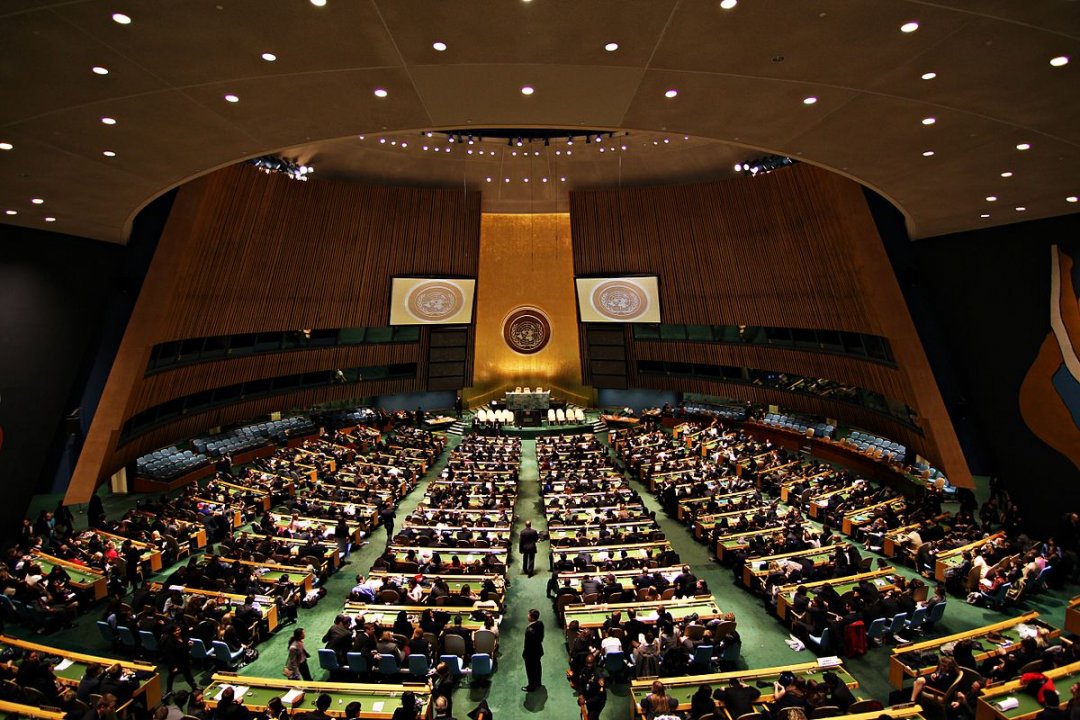
Obviously, the founding fathers of the UN Charter could not foresee one of the Security Council permanent members... dissolving. Nevertheless, passing of the seat from the USSR to Russia without even a visibility of a legal procedure has put a ticking time bomb under the world order. In 23 years since that day one of the former Soviet republics chose a revanchist trajectory and has attacked an overall of four (!) other former Soviet republics. Attacked them while enjoying the veto right at the UNSC and possibly even because of having it - is there a criminal in the world who would not take profit from a guaranteed impunity?
ANOTHER WORLD, SAME SECURITY COUNCIL, NO SPARE PLANET
It may sound as a stretch, but most of the problems that the international community is currently having with aggressive Russia are consequences of mistakes made at the moment of the Soviet Union collapse. The West, which won in a long-lasting and exhausting Cold War simply refused to take the prize.
Is there anything possibly more dangerous than an inappropriate mercy of a victor over a defeated one at the moment of victory? Will the defeated one take this mercy as a goodwill? Never. The loser will only perceive it as another humiliation and would seek opportunity for revenge.
What did the West do after winning the Cold War? When exhausted and disintegrated, having not survived the challenge, the USSR fell down together with Dzerzhinsky monument in front of “Lubianka”? Did the West disarm Moscow? No, instead, together with Moscow, it disarmed Ukraine. Did it strip the Kremlin of the UNSC veto right? No, while other parts of the USSR never gained such right, Moscow just sent in its representative to the UNSC under an informal agreement of being an “assignee”, which was never even legally stated in the Charter.
One would argue that Russia was different at that time and the West had different hopes? Well, even if this is true, we now see how wrong these hopes turned out to be quarter century later.
If the Yalta formula meant to provide the victors of the Second World War a privileged status in the postwar world order, than how does the current situation correspond with that? The WWII frontline has rolled throughout the entire territory of Ukraine twice: westwards, than eastwards. By various estimates, Ukraine lost eight to ten million people in WWII. There were almost seven million Ukrainians fighting against the Nazis: six million in the Red army, around 100,000 in the Ukrainian Insurgent Army, around 120,000 in the Polish army, around 80,000 in the U.S. Armed Forces, 45,000 in the Canadian army, around 5,000 in the French army. It’s them, among others, who gave up their bodies, souls, health and made their ultimate sacrifice to save the world from Hitler.
Now we arrive to the situation where Ukraine has no privileged status, while Russia has one.
Furthermore, the Charter’s Article 27 says that “a party to a dispute shall abstain from voting” in the Security Council. This rule is being systematically neglected not only in votings on Ukraine, where the Kremlin denies its participation, but also regarding war crimes in Syria, where Moscow openly fights on Assad’s side. In the evening civilians are bombarded with barrel bombs and chemicals and in the morning Russian representative’s hand is raised to paralyze any UN action regarding this war crime?
Of course, there is no legal tool that could impose limiting the veto right upon the UNSC members. The Charter prescribes that any amendments to it are made only through an UNSC decision, meaning that any hopes that permanent members would give up their privileged status are vague. This is the reason why all calls to limit the veto are addressed to the “Big Five” in hope that they would eventually voluntarily limit themselves. For now only France and Great Britain agreed, those who have not blocked a decision since 1989.
Abuse of the veto right by one of permanent UNSC members which also has a doubtful legal ground to be there, is surpassing not only UN goals - which are, primarily, preserving peace and security in the world order - it abuses the common sense. Blinded by impunity, the Kremlin has already got to the point where it openly threatens in its prime-time TV broadcast - on multiple instances - to use nuclear weapons. This abuse and revanchism only grows with time and it’s scary: in the last seven years Russia used its veto more than twice per year, mostly in issues regarding its own aggressive war in Europe and war crimes in Syria.
What other arguments are needed to be provided to finally fix flaws in the current Security Council without waiting for another global catastrophe? Even with no tools, the collective will of member states still can help influence the situation and persuade the “Big Five” to at least make the first step: voluntarily limit the use of veto in cases of genocide, mass murder and war crimes. One more question arises in addition to a rational calculation of possibilities: what else should Moscow do for it to be excluded from the UNSC permanent member seat? Use nuclear weapons?
We simply cannot afford to wait until another catastrophe to improve our international order formula and adjust it to the contemporary world. Furthermore, unlike the previous catastrophe, if one happens now, it risks becoming the last one. Our sad experience then won’t be of any use even for history books - there probably would be none. Then, by Albert Einstein’s famous saying, we will wage wars with sticks and stones. It’s time to act before it’s too late.
Heorhii Tykhyi, New York

